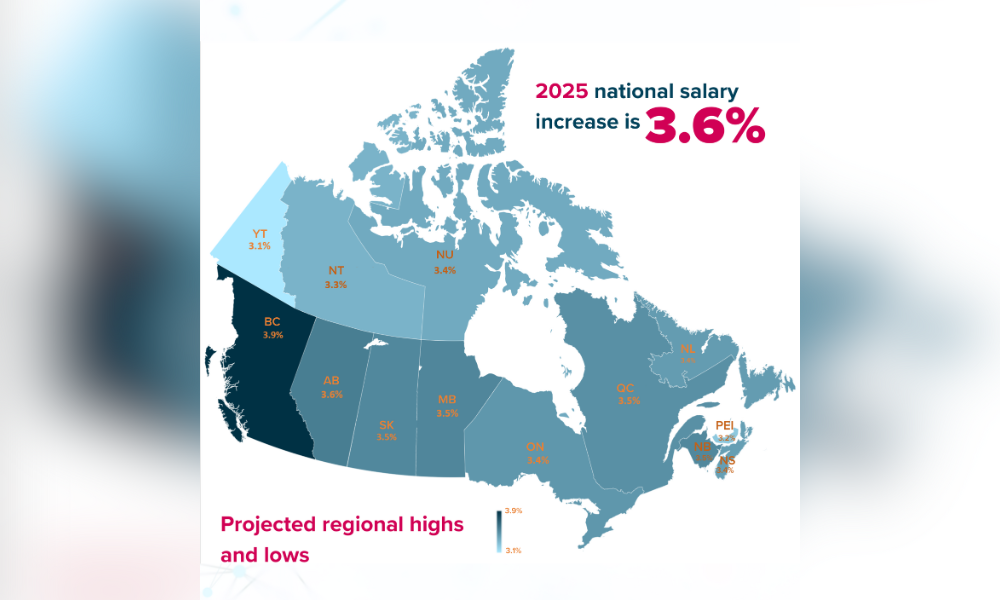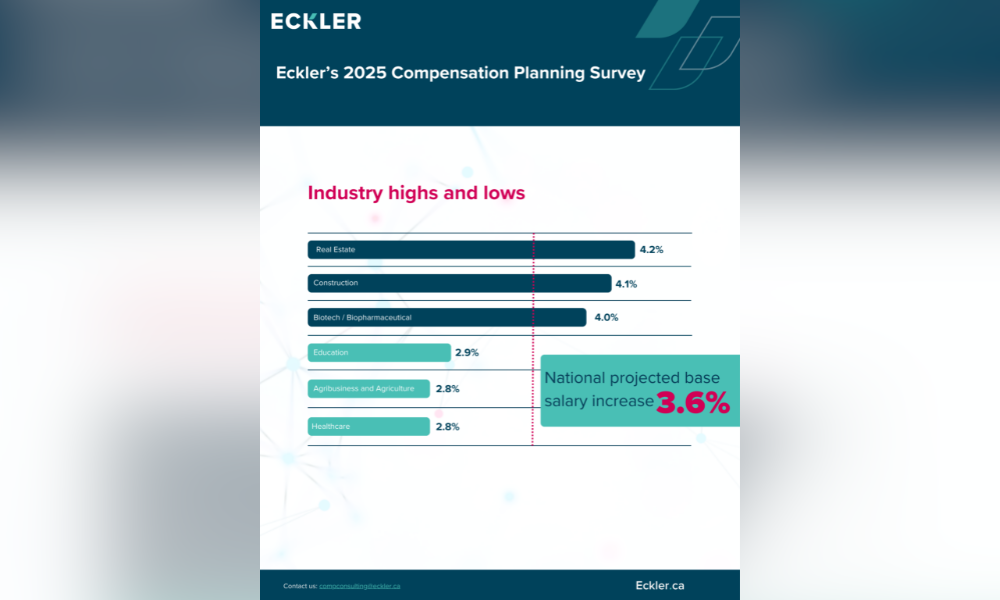
Which province will see the biggest pay increase in 2025?

Pay increase projections continue to decline for the second straight year, according to a recent report
The national average base salary increase for 2025 is projected at 3.6%, excluding planned salary freezes, reports Eckler.
That marks a drop from projected increases of 4.2% for 2022 and 3.8% for 2023. The company’s projected increase for 2021 was 3.1%.
Meanwhile, actual salary increases were at 4.2% in 2022 and went up to 4.4% the following year. However, it dropped this year.
“As inflationary pressures dissipate, planned salary increases are moderating more slowly; resulting in larger real compensation increases for employees,” says Anand Parsan, national compensation practice leader at Eckler. “We are beginning to see a reversion to pre-pandemic norms.”
And Eckler’s survey of over 500 Canadian institutions, conducted from June to August 2024, reveals that only 18% of organizations are undecided about 2025 salary budgets, versus 58% in 2024.
In 2022, the median family after-tax income of Canadians was $60,800, up by 2.5% from 2021, before adjusting for inflation. However, when adjusted for an annual rate of inflation of 6.8%, the 2022 median family after-tax income was 4.0% lower than in 2021, according to Statistics Canada (StatCan).
Among provinces and territories, British Columbia has the highest projection base pay increase for 2025. Meanwhile, Yukon has the lowest.

Source: Eckler
Among industries, the highest projected average salary increase in real estate, and the lowest is in healthcare.

Source: Eckler
When it comes to compensation, human resources teams will be focusing on:
“As the labour market continues to rebalance, organizations are shifting their attention towards effectively managing their compensation programs. How they communicate their total rewards package to employees, how transparent they are with compensation, how effective and equitable are their pay programs,” says Parsan.
The number of Canadians who are struggling financially today is bigger than the comparable data recorded when the COVID-19 pandemic was still ongoing, according to another StatCan report.